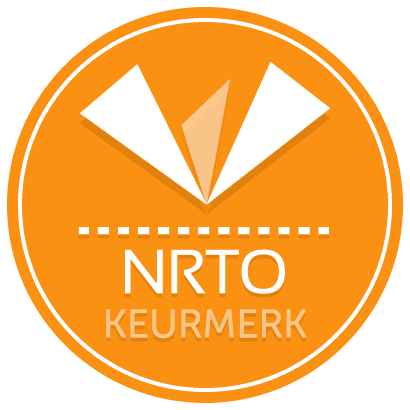Algemene omschrijving
The DP-600 E-Learning is entirely in English. As a Dutch IT training provider, we offer the information on this page in Dutch. At the bottom of the page, you will find a brief summary in English. The topics within the DP-600 E-Learning package itself are described in English.
Met de DP-600 E-Learning verkrijg jij diepgaande kennis en vaardigheden op het gebied van het implementeren en beheren van grootschalige data-analyseoplossingen binnen Microsoft Fabric. Door de DP-600 E-Learning door te nemen, zul je leren hoe jij complexe data-uitdagingen op kunt lossen met behulp van krachtige componenten, zoals lakehouses, datawarehouses en datapijplijnen.
Daarnaast zul je met de DP-600 E-Learning leren hoe jij analytische hulpmiddelen effectief in kunt zetten en hoe jij waardevolle inzichten kunt leveren aan jouw organisatie. De DP-600 E-Learning bestaat uit het DP-600 cursusmateriaal, een MeasureUp oefenexamen en een DP-600 examenvoucher.
Als jij de PL-300 certificering hebt behaald of ervaring hebt in datamodellering en datavisualisatie, dan is de DP-600 E-Learning een passend vervolg om jouw carrière verder te ontwikkelen en nieuwe kansen te benutten binnen het vakgebied van Datawetenschap en -analyse.
Doelgroep
De DP-600 E-Learning is geschikt voor professionals die hun kennis en vaardigheden op het gebied van data-analyseoplossingen uit willen breiden.
Dit betreft met name de volgende mensen:
- Data-analisten en data-engineers die grootschalige data-analyseprojecten willen implementeren en beheren met behulp van Microsoft Fabric.
- Power BI-specialisten die de PL-300-certificering hebben behaald of ervaring hebben met Power BI en hun expertise uit willen breiden naar geavanceerde data-analyseoplossingen.
- Ervaren professionals in datamodellering en data-visualisatie die hun bestaande kennis en vaardigheden toe willen passen op grootschalige data-oplossingen door gebruik te maken van krachtige componenten, zoals lakehouses en datawarehouses.
- ICT-professionals in datawetenschap die inzicht willen krijgen in complexe data-uitdagingen en binnen sectoren werken als:
- Financiële dienstverlening.
- Gezondheidszorg.
- Detailhandel.
- ICT.
Wat is inbegrepen
De DP-600 E-Learning biedt jou een complete leerervaring waarin je alles krijgt wat je nodig hebt om grootschalige data-analyseoplossingen te leren implementeren en te beheren met behulp van Microsoft Fabric.
Hier is een overzicht van de inhoud van de DP-600 E-Learning:
- DP-600 cursusmateriaal
- Het DP-600 cursusmateriaal bestaat uit uitgebreide en diepgaande lesstof waarin je leert werken met componenten als lakehouses, datawarehouses en datapijplijnen.
- MeasureUp oefenexamen
- Toets jouw kennis met een MeasureUp oefenexamen en bereid je optimaal voor op het DP-600 examen.
- DP-600 examenvoucher
- Met een DP-600 examenvoucher kun je het DP-600 examen afleggen om de DP-600 certificering te behalen.
Voorkennis
Voordat je begint met de DP-600 E-Learning, raden wij aan dat jij eerst de PL-300 E-Learning hebt doorgenomen en dat jij het bijbehorend certificaat Microsoft Certified: Power BI Data Analyst Associate hebt behaald.
Ten slotte dien je ook ervaring te hebben met het ontwikkelen en implementeren van oplossingen voor data-analyse op bedrijfsniveau.
Onderwerpen
Module 1: Ingest Data with Dataflows Gen2 in Microsoft Fabric
- Describe Dataflow Gen2 capabilities in Microsoft Fabric.
- Create Dataflow Gen2 solutions to ingest and transform data.
- Include a Dataflow Gen2 in a pipeline.
Lab: Create and use a Dataflow Gen2 in Microsoft Fabric
Module 2: Ingest data with Spark and Microsoft Fabric notebooks
- Ingest external data to Fabric lakehouses using Spark.
- Configure external source authentication and optimization.
- Load data into Lakehouse as files or as Delta tables.
Lab: Ingest data with Spark and Microsoft Fabric notebooks
Module 3: Use Data Factory pipelines in Microsoft Fabric
- Describe pipeline capabilities in Microsoft Fabric.
- Use the Copy Data activity in a pipeline.
- Create pipelines based on predefined templates.
- Run and monitor pipelines.
Lab: Ingest data with a pipeline
Module 4: Get started with lakehouses in Microsoft Fabric
- Describe the core features and capabilities of lakehouses in Microsoft Fabric.
- Create a lakehouse.
- Ingest data into files and tables in a lakehouse.
- Query lakehouse tables with SQL.
Lab: Create and ingest data with a Microsoft Fabric Lakehouse
Module 5: Organize a Fabric lakehouse using medallion architecture design
- Describe the principles of using the medallion architecture in data management.
- Apply the medallion architecture framework within the Microsoft Fabric environment.
- Analyze data stored in the lakehouse using DirectLake in Power BI.
- Describe best practices for ensuring the security and governance of data stored in the medallion architecture.
Lab: Organize your Fabric lakehouse using a medallion architecture
Module 6: Use Apache Spark in Microsoft Fabric
- Configure Spark in a Microsoft Fabric workspace.
- Identify suitable scenarios for Spark notebooks and Spark jobs.
- Use Spark data frames to analyze and transform data.
- Use Spark SQL to query data in tables and views.
- Visualize data in a Spark notebook.
Lab: Analyze data with Apache Spark
Module 7: Work with Delta Lake tables in Microsoft Fabric
- Understand Delta Lake and delta tables in Microsoft Fabric.
- Create and manage delta tables using Spark.
- Use Spark to query and transform data in delta tables.
- Use delta tables with Spark structured streaming.
Lab: Use delta tables in Apache Spark
Module 8: Get started with data warehouses in Microsoft Fabric
- Describe data warehouses in Fabric.
- Understand a data warehouse vs a data Lakehouse.
- Work with data warehouses in Fabric.
- Create and manage datasets within a data warehouse.
Lab: Analyze data in a data warehouse
Module 9: Load data into a Microsoft Fabric data warehouse
- Learn different strategies to load data into a data warehouse in Microsoft Fabric.
- Learn how to build a data pipeline to load a warehouse in Microsoft Fabric.
- Learn how to load data in a warehouse using T-SQL.
- Learn how to load and transform data with dataflow Gen 2.
Lab: Load data into a warehouse in Microsoft Fabric
Module 10: Monitor a Microsoft Fabric data warehouse
- Monitor capacity unit usage with the Microsoft Fabric Capacity Metrics app.
- Monitor current activity in the data warehouse with dynamic management views.
- Monitor querying trends with query insights views.
Lab: Monitor a data warehouse in Microsoft Fabric
Module 11: Understand scalability in Power BI
- Describe the importance of building scalable data models.
- Implement Power BI data modeling best practices.
- Use the Power BI large dataset storage format.
Lab: Create a star schema model
Module 12: Create Power BI model relationships
- Understand how model relationship work.
- Set up relationships.
- Use DAX relationship functions.
- Understand relationship evaluation.
Lab: Work with model relationships
Module 13: Use tools to optimize Power BI performance
- Optimize queries using performance analyzer.
- Troubleshoot DAX performance using DAX Studio.
- Optimize a data model using Tabular Editor.
Lab: Use tools to optimize Power BI performance
Module 14: Enforce Power BI model security
- Restrict access to Power BI model data with RLS.
- Restrict access to Power BI model objects with OLS.
- Apply good development practices to enforce Power BI model security.
Lab: Enforce model security
English Summary
The DP-600 E-Learning equips you with advanced knowledge and skills to implement and manage large-scale data analytics solutions using Microsoft Fabric. You will learn to tackle complex data challenges with components like lakehouses, datawarehouses, and pipelines while delivering valuable insights to your organization. The DP-600 E-Learning includes the DP-600 course materials, a MeasureUp practice exam, and a DP-600 exam voucher to support your career growth in data analytics.









